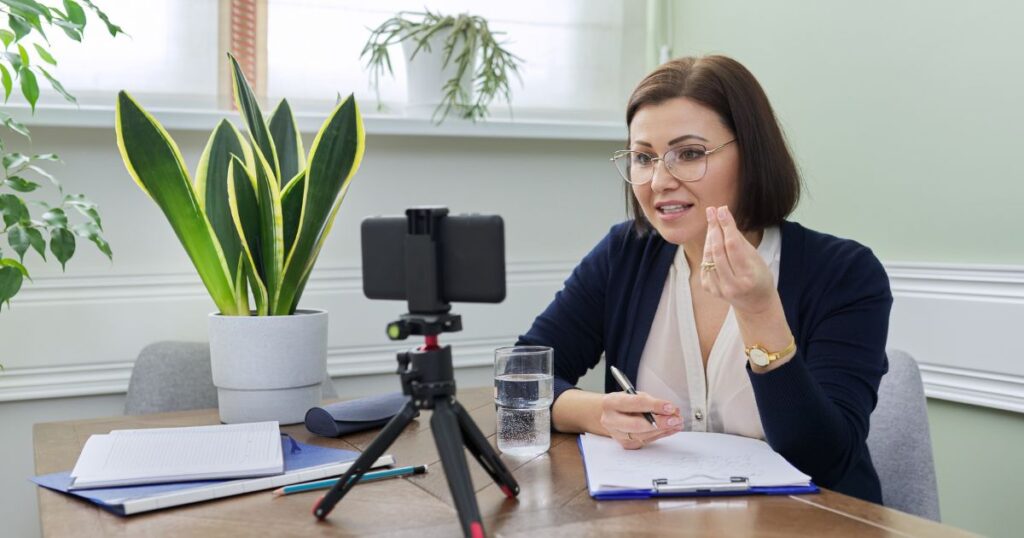Establishing Trust and Confidence in Your Work
In the article “Establishing Trust and Confidence in Your Work,” the importance of inspiring trust in your role as an Executive Assistant, Personal Assistant, or Administrative Professional is explored. Building a strong relationship of trust and confidence with your Executive is crucial for efficiently supporting them and contributing to the overall success of the company. The article outlines key steps for creating and fostering these types of relationships, including showcasing your skills through actions, effective communication, providing respectful feedback and suggestions, building credibility, gaining experience, and establishing face-to-face interactions. By following these guidelines, you can forge a mutual relationship of respect and inspire trust in your work.
Establishing Trust and Confidence in Your Work
As an Executive Assistant, Personal Assistant, or Administrative Professional, it is crucial to establish a strong relationship of trust and confidence with your Executive. This relationship is the foundation for your ability to efficiently support them in achieving their goals and contributes to the overall success of the company. In this article, we will explore the key steps necessary for creating and fostering these types of relationships built on mutual respect and appreciation to ensure that you are inspiring trust in your work.
Show, don’t just tell
Trust is earned through actions, not just words. It’s important to take the initiative to showcase your skills and understanding by going beyond verbal assurances. Share specific examples from your experience that highlight your ability to comprehend and contribute to the business. Even temporary assignments provide opportunities to leave a lasting impression. Proactively demonstrate your talent, regardless of the duration, and let your Executive see firsthand the value you bring.
Communicate effectively
Effective communication is the cornerstone of any successful partnership. It’s essential to adapt your communication style to match your Executive’s preferences, ensuring your messages are conveyed clearly and understood. Actively listen to their needs, concerns, and feedback, and respond thoughtfully. Use face-to-face meetings as opportunities to establish a personal connection, fostering mutual understanding and respect.
Respectful feedback and suggestions
When providing feedback or suggesting ideas, approach your Executive with respect and professionalism. Frame your suggestions as potential solutions or improvements, emphasizing the value they can bring. Begin by acknowledging their perspectives and concerns, showing that you value their input. Stay open to their ideas and adapt your approach accordingly, fostering a collaborative environment.
Build credibility
Credibility is the foundation of trust. Consistently deliver high-quality work, demonstrate a strong work ethic, and strive to exceed expectations whenever possible. Be reliable and meet deadlines consistently. Establish yourself as a trusted resource by proactively seeking a deep understanding of the business, industry trends, and your Executive’s priorities. Building credibility takes time, but it’s an investment that pays off in the long run.
Confidence comes with experience
Confidence grows as you gain experience and achieve successful outcomes. Embrace every opportunity to demonstrate your competence and expand your skill set. Celebrate small victories and leverage them as stepping stones to tackle larger challenges. Emphasize continuous learning and professional development to enhance your knowledge and expertise. The more confident you become, the more your Executive will appreciate and trust your abilities.
Establish face-to-face time
Regular face-to-face interactions are invaluable for building trust and understanding. Seek opportunities to engage in meaningful conversations, provide project updates, and align goals. Respect your Executive’s time and preferences, but take the initiative to guide the frequency and format of these interactions. Face-to-face meetings create a deeper connection and foster a more productive working relationship.

Demonstrate a commitment to excellence
Trust is not earned overnight; rather, it is garnered through your actions over a period of time. A commitment to excellence in each and every task you carry out is essential in building trust and confidence in your work. Strive to consistently deliver work of the highest quality, meet deadlines punctually, and demonstrate a strong work ethic. By focusing on excellence, you establish yourself as a reliable and trustworthy professional.
Develop communication skills
Effective communication is crucial in establishing trust with your Executive. It’s important to continuously develop your communication skills to ensure that your messages are conveyed clearly and understood. Actively listen to your Executive’s needs, concerns, and feedback, and respond thoughtfully. Seek opportunities for professional development in areas such as active listening, assertiveness, and conflict resolution.

Consider body language
Body language plays a significant role in effective communication and building trust. Be mindful of your body language when interacting with your Executive and colleagues. Maintain open and confident body posture, maintain eye contact, and engage in active listening non-verbal cues. By paying attention to your body language, you can convey trust, confidence, and professionalism.
Maintain confidentiality
Confidentiality is a key aspect of building trust in your work. Respect the confidentiality of sensitive information shared with you by your Executive or colleagues. Ensure that confidential information is securely stored and only shared with authorized individuals. By demonstrating your commitment to confidentiality, you establish yourself as a trustworthy and reliable professional.
In conclusion, establishing trust and confidence in your work as an Executive Assistant, Personal Assistant, or Administrative Professional is crucial for your success. By taking the initiative to showcase your skills, communicating effectively, providing respectful feedback and suggestions, building credibility, and demonstrating a commitment to excellence, you can inspire trust in your abilities. Additionally, developing your communication skills, considering body language, and maintaining confidentiality further strengthen this trust. Remember, trust is earned over time through consistent actions, and it is the foundation for a lasting and mutually beneficial professional relationship.

Frequently Asked Questions (FAQs) for Building Trust and Confidence with a Virtual Assistant
1. Why should I take risks in choosing a virtual assistant?
Taking risks in hiring a virtual assistant involves making a decision and moving forward, even if you might have some doubts. This act of trust can be beneficial for both parties. It allows the virtual assistant to feel confident and appreciated, knowing that you chose them over other candidates. This can foster a positive working environment and encourage the VA to perform at their best linkedin.com.
2. How can setting goals help establish trust with my virtual assistant?
When you clearly communicate the goals for your company and the VA’s role in achieving those goals, it gives them a sense of purpose and direction. This not only helps them understand their tasks better, but it also builds trust and confidence that they can fulfill their responsibilities. Regularly setting and reviewing key performance indicators (KPIs) can further reinforce this trust linkedin.com.
3. How does embracing failure contribute to building trust with my virtual assistant?
Embracing failure means acknowledging that mistakes are part of the learning process. When you allow your VA to make mistakes and learn from them, it shows your trust in their ability to improve and grow. This approach can make the VA more confident in their skills and more willing to take ownership of their work, thereby building a stronger professional relationship linkedin.com.
4. Can giving my virtual assistant access to my personal life help build trust?
While this may not be suitable for everyone, giving your VA access to certain aspects of your personal life can help them understand you better and anticipate your needs more accurately. This can foster a deeper level of trust and enable the VA to perform tasks more efficiently. However, it’s important to set clear boundaries and respect privacy linkedin.com.
5. How does having my virtual assistant create documentation help establish trust?
By having your VA create documentation for your business, you can evaluate their understanding of their tasks and responsibilities. This can not only help you gauge their competence but also ensure that they understand your expectations. This process can build your confidence in their abilities and strengthen your trust in them linkedin.com.
6. How can I build a healthy relationship with my virtual assistant?
Building a healthy relationship with your VA comes down to balance and mutual respect. Defining your expectations and understanding theirs is important. Being flexible and open to change as your relationship grows can facilitate a long-term working relationship with positive outcomes linkedin.com.
7. How can I trust my virtual assistant with sensitive information?
Trust is a critical factor when sharing sensitive information with your VA. Using password managers like Lastpass can allow your VA to access necessary information without seeing your actual login credentials, thereby maintaining security linkedin.com.
8. How can I ensure the accuracy, efficiency, and security of work done by my virtual assistant?
Trust is the key to ensuring accuracy, efficiency, and security. When you trust your VA, you are more likely to delegate tasks confidently, knowing they will be completed effectively. A trusted VA is also more likely to handle sensitive data with care linkedin.com.
9. Are virtual assistants reliable?
The reliability of a virtual assistant, like any other professional, can vary. However, a thorough vetting process can help you find a reliable and competent VA. It’s important to look for qualities like good communication, time management, resourcefulness, self-motivation, and organization linkedin.com.
10. What should I do if I am struggling to let go and trust my virtual assistant with my business?
Starting with small tasks can help you gradually build trust with your VA. Using secure software to share sensitive information can also alleviate concerns. Over time, as you get to know your VA better, you can increase the complexity and responsibility of the tasks you delegate to them



